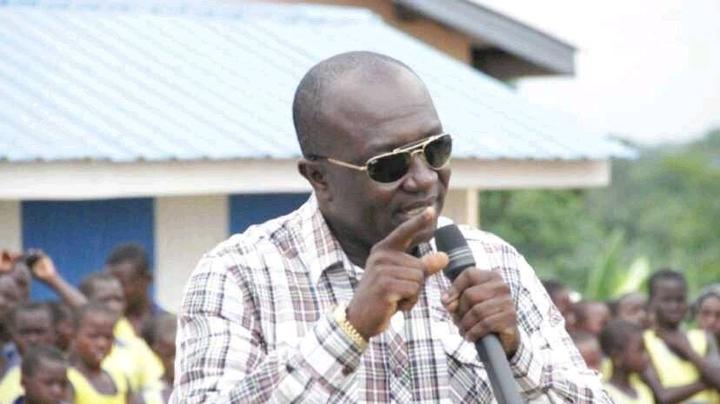In a highly charged interview on UTV, Edward Ennin, the former Member of Parliament for Obuasi East and a former member of the ruling New Patriotic Party (NPP), has made serious accusations of embezzlement involving significant sums of state funds during the presidency of Nana Addo Dankwa Akufo-Addo. Ennin claims to possess evidence of these illicit financial activities, which he alleges were secretly moved both within Ghana and internationally.
Ennin, who held a prominent position in the NPP before his departure, pointed the finger at top government officials and diplomats. According to Ennin, some Ghanaian ambassadors and high commissioners are aware of the movement of these misappropriated funds. He suggests that these diplomats were complicit in the illegal transfer of state money, allegedly routed to foreign destinations. “The ambassadors know about all the stolen funds that have been sent abroad. We will soon see what happens,” Ennin remarked, hinting at a network of international connections facilitating the illicit transactions.
Moreover, Ennin went on to suggest that some of the stolen funds may have been invested in ventures abroad, with a particular focus on oil exploration in Guyana. He raised concerns that investments in Guyana’s oil blocks might be linked to the misappropriated Ghanaian state funds, pointing to suspicious activities in the region. These claims, if true, could have far-reaching implications for both Ghana’s economic interests and the global networks of corruption.
Despite the gravity of the accusations, Ennin expressed his willingness to cooperate with any investigation into the matter. “I’m ready to go before any committee to present my evidence because Ghana’s interest comes first,” Ennin declared, emphasizing his commitment to the country’s development. His readiness to provide the evidence he claims to have could set the stage for a major investigation into the allegations.
In addition to the embezzlement claims, Ennin also accused certain government officials, including District Chief Executives (DCEs) and members of parliament, of involvement in illegal small-scale mining, commonly known as “galamsey.” He suggested that these activities were being conducted with the knowledge or involvement of high-ranking government figures, further complicating the situation.
Ennin’s accusations have already sparked public outcry, with many concerned citizens and anti-corruption advocates calling for immediate action from law enforcement agencies. The Special Prosecutor’s office, along with other relevant bodies, has been urged to take swift and decisive steps to investigate these allegations. Some have warned that failing to address the claims could undermine the government’s anti-corruption efforts and erode public trust.
Dr. Kwame Asiedu, a well-known governance expert, weighed in on the allegations, describing them as a critical moment for Ghana’s anti-corruption movement. “This is an opportunity to demonstrate that corruption will not be tolerated, no matter who is involved,” he said. His comments highlight the importance of holding both high-ranking officials and public servants accountable for their actions, regardless of their political affiliation or position.
As the story continues to develop, these claims have ignited intense debate regarding the state of governance, accountability, and transparency within the Akufo-Addo administration. Should investigations confirm Ennin’s allegations, the consequences could reverberate throughout Ghana’s political landscape, sparking further calls for systemic reforms to combat corruption and ensure that public funds are used to benefit the people of Ghana.
The coming weeks will likely bring more developments as authorities examine the evidence and consider the broader implications of Ennin’s explosive accusations. The unfolding situation may very well serve as a turning point in Ghana’s ongoing fight against corruption, a fight that could ultimately shape the future of the nation’s leadership and its commitment to national development.
